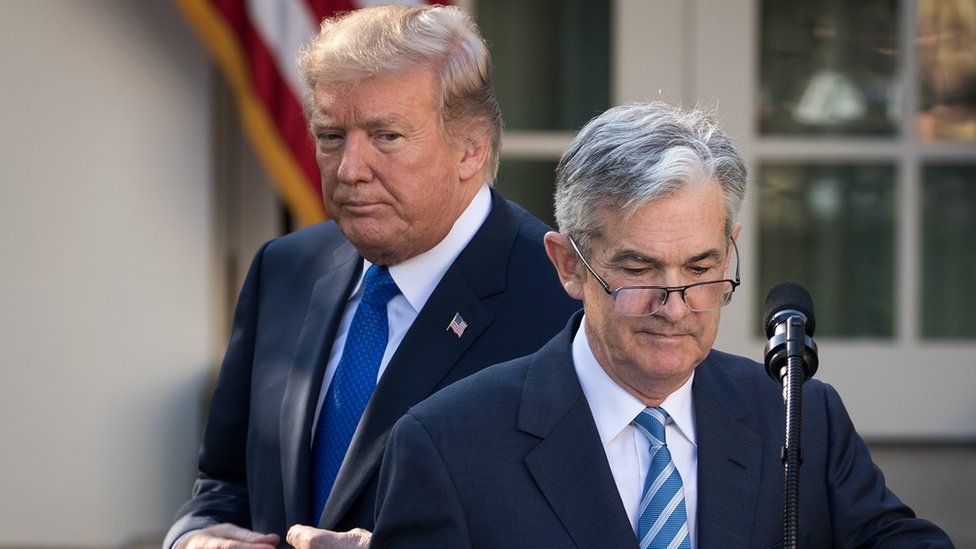
- Commodities
- Cryptocurrency
- Indices
- Stocks
Trump plans to influence Fed decisions
Do you want to know how to make money from this?
Register for free and get expert advice, access to a training course and webinars.
Key points:
- Donald Trump believes that the US president should have the right to influence the decisions of the Federal Reserve.
- Currently, the Fed has significant operational independence, which allows it to make decisions without interference from political structures.
- A violation of the Fed’s independence could lead to monetary policy mistakes similar to those that occurred in the 1970s.
Republican candidate Donald Trump suggested Thursday that U.S. presidents should be given the power to influence the Federal Reserve’s decisions, the clearest sign yet of his intention to curb the central bank’s independence if he wins the presidency again.
Trump’s plans
In April, the Wall Street Journal reported that Trump’s allies had developed proposals to undermine the Federal Reserve’s independence if he wins the election. The former president told reporters at his Mar-a-Lago estate in Florida that he believed the president should at least have a say in Fed matters, noting that his successful financial background gave him better insight than many people who might serve at the Fed or serve as chairman.
His comments Thursday signaled his full agreement with one key aspect of the proposals: that Trump should be consulted on interest rates and that the White House should consider proposals for Fed regulation if he wins the presidency.
The next president, whether Trump or Democratic challenger Kamala Harris, would have the opportunity to name a new Fed chair within the first two years of his or her term. One way to tamper with the Fed’s independence would be to select and confirm a candidate willing to follow Trump’s lead and maintain his influence over the central bank.
How does the Federal Reserve work now?
The Federal Reserve Chairman and the other six members of its Board of Governors are appointed by the President of the United States and confirmed by the Senate. However, the Fed enjoys significant operational independence, allowing it to make policy decisions that have a significant impact on the world’s largest economy and global asset markets. In particular, one of the factors that supports the U.S. dollar’s status as the world’s reserve currency is the Fed’s ability to set monetary policy independently, without political interference.
This status, in turn, gives the U.S. government virtually unlimited ability to raise funds in global bond markets at relatively low interest rates, despite its $35 trillion in debt, which is sometimes called an “excessive privilege.”
Economists worry that the situation could lead to policy mistakes similar to those that occurred in the early 1970s, when Fed Chairman Arthur Burns came under pressure from President Richard Nixon to maintain expansionary monetary policy before the 1972 election despite signs of rising inflation. By 1974, inflation had surpassed 12% and remained a serious problem for the next decade until Fed Chairman Paul Volcker brought it under control by raising interest rates, leading to two recessions in the early 1980s.
Current Fed Chairman Jerome Powell’s term as chair expires in 2026, and his seat on the Fed board expires in 2028. Powell was first appointed to the Fed board by former President Barack Obama, but was Trump’s choice to lead the central bank, a post Powell assumed in early 2018.
In an interview published last month by Bloomberg, Trump said he wouldn’t try to oust Powell if he became president.
Do you want to know
How to make money from the news
Register for free and get:
- Expert consultation;
- Access to the training course;
- Opportunity to participate in webinars

